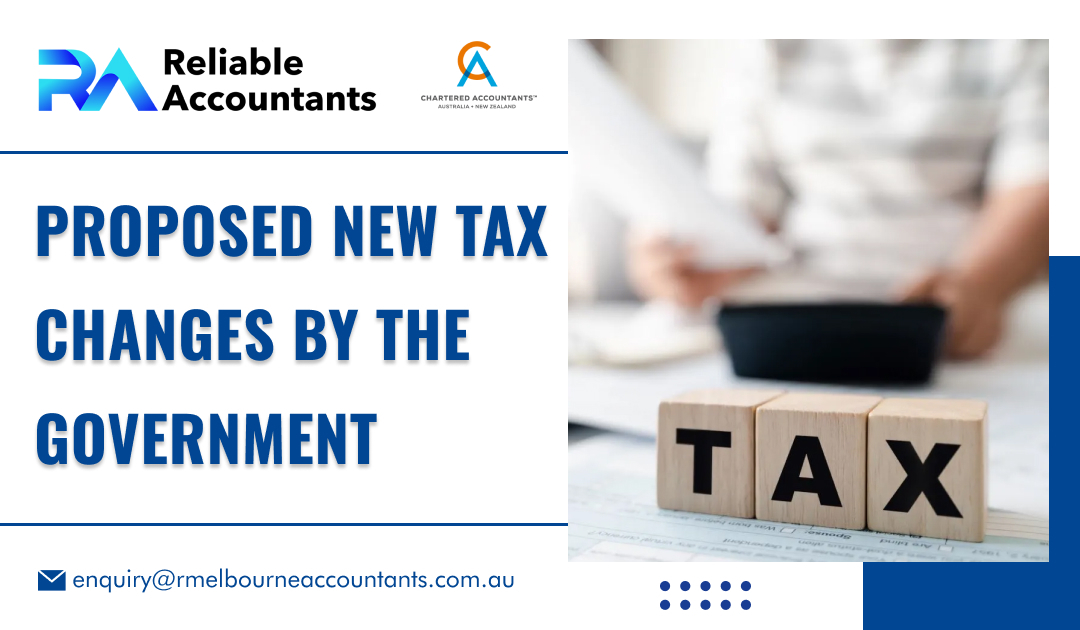In today’s blog, we’ll share new information on tax changes recently announced by the government. Every accountant and adviser must know about this new update. Continue reading this blog to know what new changes have been proposed.
Consultation on Over $3m Super Balance Tax Changes
Treasury has released a consultation paper on newly announced tax on super fund earnings over $3m. According to the consultation paper, payment of insurance benefits under an insurance policy carried by a member will be deducted for calculating earnings. Additionally, it changes the order of the earnings calculation from the earnings calculation in the fact sheet:
𝐸𝑎𝑟𝑛𝑖𝑛𝑔𝑠 = 𝑇𝑆𝐵 𝐶𝑢𝑟𝑟𝑒𝑛𝑡 𝐹𝑖𝑛𝑎𝑛𝑐𝑖𝑎𝑙 𝑌𝑒𝑎𝑟 – 𝑇𝑆𝐵 𝑃𝑟𝑒𝑣𝑖𝑜𝑢𝑠
𝐹𝑖𝑛𝑎𝑛𝑐𝑖𝑎𝑙 𝑌𝑒𝑎𝑟 + 𝑊𝑖𝑡ℎ𝑑𝑟𝑎𝑤𝑎𝑙𝑠 − 𝑁𝑒𝑡 𝐶𝑜𝑛𝑡𝑟𝑖𝑏𝑢𝑡𝑖𝑜𝑛
To the updated earnings calculation in the consultation:
𝐸𝑎𝑟𝑛𝑖𝑛𝑔𝑠 = (𝑇𝑆𝐵 C𝑢𝑟𝑟𝑒𝑛𝑡 𝐹𝑖𝑛𝑎𝑛𝑐𝑖𝑎𝑙 𝑌𝑒𝑎𝑟 + 𝑊𝑖𝑡ℎ𝑑𝑟𝑎𝑤𝑎𝑙𝑠 − 𝑁𝑒𝑡 𝐶𝑜𝑛𝑡𝑟𝑖𝑏𝑢𝑡𝑖𝑜𝑛s)- 𝑇𝑆𝐵 𝑃𝑟𝑒𝑣𝑖𝑜𝑢𝑠 𝐹𝑖𝑛𝑎𝑛𝑐𝑖𝑎𝑙 𝑌𝑒𝑎𝑟.
The consultation takes input on:
- Whether the current total super balance’s calculation is appropriate to make the calculation for the earnings tax liability.
- Whether there is a need for changes to how the portion of earnings is calculated.
- Any unplanned results of:
- the method applied to check the tax liability, or
- the options for paying the tax liability.
- For defined benefit funds, whether:
- the current valuation techniques in the pre-pension phase work for making calculations for the balances above $3m
- the current valuation methods in the pension phase give the right value for calculating earnings
- alternate ways that must be considered.
For SMSFs, reporting needs to be part of the year-end tax return process. If enacted, the 2025-26 financial year is intended to be reported in the first half of 2027 – in the second half of 2027, first notifications for the new tax liability can be expected.
Announced Changes to the Thin Capitalisation Rules
An exposure draft legislation concerning notable modifications to Australia’s thin capitalisation regulations has been released by the Treasury. These regulations have the potential to impose a limit on the amount of ‘debt deductions’, such as interest deductions, that can be asserted by resident entities with foreign control or those that have operations overseas in Australia.
The announced changes are comprehensive and seek to make sure that the Australian system matches the OECD’s suggestions on base erosion and profit shifting (BEPS). The new rules will apply from 1 July 2023 and as a result, business groups have limited time to check the practical application of the modifications and for the ATO to give detailed assistance on new rules in case they end up passing through Parliament.
Affected taxpayers need to take into account the new changes and the interaction between these updated rules and other factors of the tax law. The following are two changes to the rules:
- Removing the existing categories of ‘inward investor’ and ‘outward investor’ with a single category suitable for all entities.
- The present techniques for determining the eligibility of debt deductions, which comprise the safe harbour debt test, worldwide gearing ratio test, and arm’s length debt test, will be substituted by a fixed ratio test, a group ratio test, and an external third-party debt test. This will result in a complete replacement of the relevant debt tests.
The recently proposed tests will adopt an earnings-based method instead of an asset-based approach. Nevertheless, it seems that some current exemptions from the regulations, including the $2m de minimis threshold, will remain applicable. The exposure draft legislation also encompasses an undisclosed provision that eliminates the deductions that were previously offered under section 25-90 and section 230-15(3) ITAA 1997 for interest costs obtained while obtaining specific foreign dividends that qualify as non-assessable non-exempt income under section 768-5.
Disclosure of Subsidiary Information
Exposure draft legislation has been released requiring public companies to report information publicly about their subsidiary entities. The new provisions would need Australian public companies to give a ‘consolidated entity statement’ that would be a part of their yearly financial reporting obligations. It would be required where the accounting standards need the public company to prepare financial statements concerning a consolidated entity.
Disapproved Deductions for Payments Relating to Intangible Assets
Exposure draft legislation has been released by the treasury dealing with new rules that would prevent large multinational companies from accessing tax deductions for payments relating to intangible assets related to low corporate tax jurisdictions. The rules are aimed at significant global entities (SGEs) and would come into effect from 1 July 2023.
A new anti-avoidance provision would be applied to stop SGEs from claiming a deduction for payments made to an associate to the extent that the payment is attributable to exploiting an intangible asset. The rules will apply if the receiver of the payment or another associate derives income in relation to the exploitation of the asset in low corporate tax jurisdictions that are defined as a foreign country, which applies a 0% corporate income tax rate or less than 15% rate.
The minister is allowed to treat a country as a low corporate tax jurisdiction if the minister agrees that the country offers a preferential patent box regime without enough economic substance.
Conclusion
Recently, the government has announced new rules and tax updates. Every accountant and tax adviser must know about all those changes. For detailed information, you can contact Reliable Melbourne Accountants

